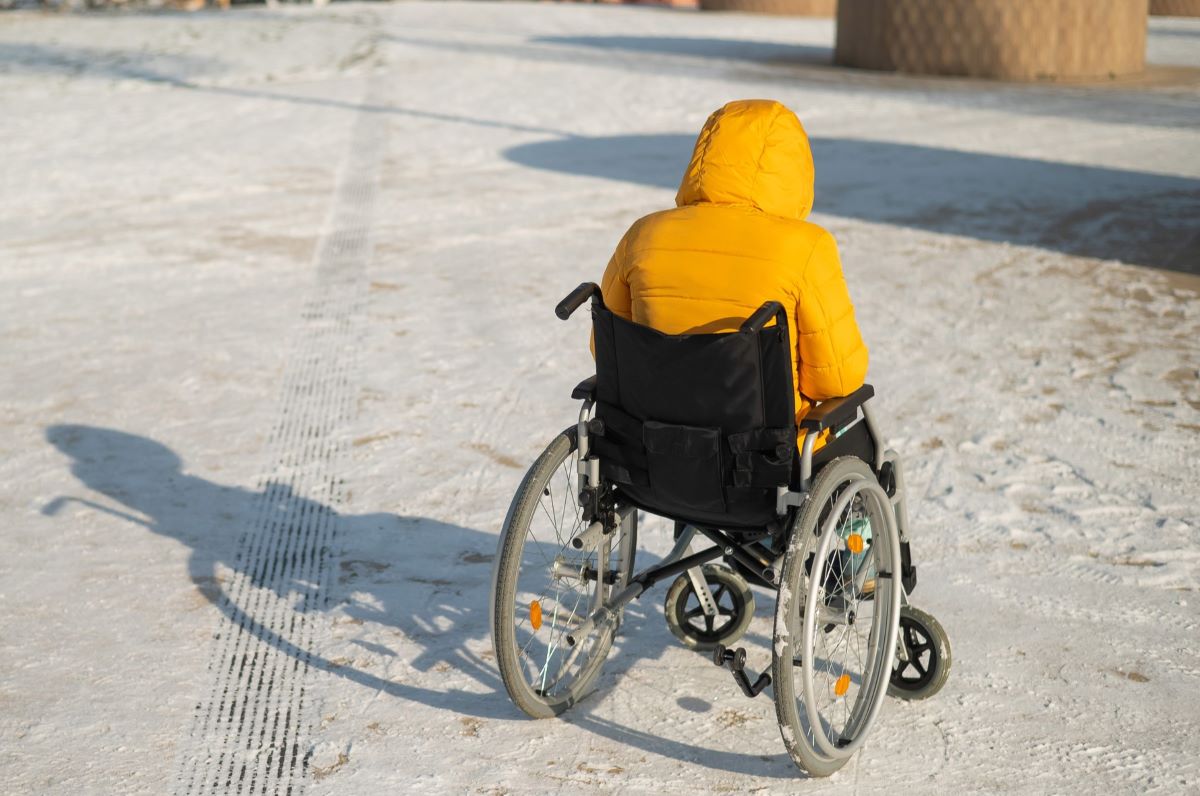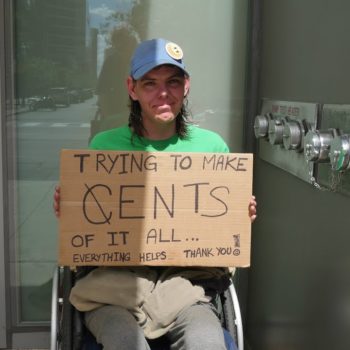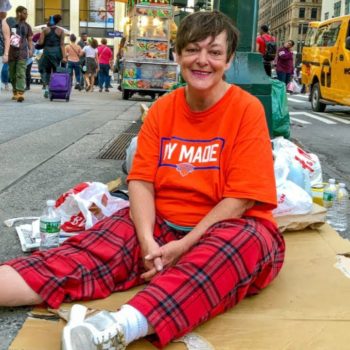Homelessness and Disabilities Are Intertwined in Ways Most People Don’t Even Realize
A disproportionate number of unhoused people are disabled. This is because homelessness can be disabling, and disabled people in the United States are not sufficiently supported and face unique barriers to supporting themselves.
From employment and housing discrimination to legal limits on how much you can have in a savings account and still receive disability benefits, the deck is unnecessarily stacked against disabled people, leaving many to fall through holes in the so-called safety net and end up homeless.
Once homeless, access to medical care is severely diminished. Those with existing disabilities may find them worsening, while previously able-bodied people become disabled in various ways. This is the vicious cycle of disability and homelessness.
How Does Homelessness Cause Disability?
Homelessness is not a state of being that’s conducive to anyone’s health. The stress of daily living alone can be enough to wear you down. Add to that the difficulty of obtaining medical care, exposure to the elements, lack of access to hygiene necessities, and straight-up violence that unhoused people are forced to endure. It’s easy to see how this can be disabling.
PTSD, depression, and anxiety are all common effects of experiencing homelessness. Physical disabilities can also manifest from illness or injuries sustained while homeless. The inaccessibility of medical care can make even minor problems significant issues as they snowball into permanent disabilities without appropriate intervention.
How Does Disability Cause Homelessness?
Many paths lead straight from disability to homelessness, and they often converge. When you lay them all out, it seems pretty miraculous that disabled people are managing to maintain their housing! The pitfalls are like Swiss cheese.
Perhaps most simply, disabled people often face discrimination in housing. Whether it’s their own personal bias, misconceptions about people with mental health conditions, or an unwillingness to make reasonable accommodations for people with physical disabilities, landlords don’t want to rent to people who they know to be disabled.
While nondisclosure is an option for some people, others need to disclose their disabilities in order to have any hope of getting a place to live with the accommodations they require.
Landlords aren’t the only ones who balk at giving reasonable accommodations or even interacting with people they know to be disabled. Employers are right there beside them.
The unemployment rate for disabled people is more than twice as high as the unemployment rate for nondisabled people. And that’s just for the people who can work. Many more are unable to work either due to their disabilities or the strict requirements for maintaining their government benefits, which, ironically, prevent many disabled people who would like to work from doing so.
The current limit to the amount of assets you can have while still receiving SSI benefits is $2,000 for an individual and $3,000 for a couple. Yes, that does mean that married, disabled people incur a 25% penalty, which prevents many from ever marrying.
This limit includes the money in all bank accounts, investment accounts, land, life insurance, vehicles, personal property, and anything you could sell quickly, with limited exceptions. Going over that amount could cause you to lose your benefits.
Needless to say, 2 or 3 thousand dollars can’t provide a firm financial foundation in the current economy. If you face any financial hardship, lose your benefits for any reason, or have a late check, there’s minimal cushion to protect you from losing your housing and becoming homeless.
Arguably, that’s not even the most frustrating part of SSI. In addition to the low benefit amounts that often aren’t enough even to cover rent, the marriage penalty, and other strict rules to maintain eligibility, it can take years and several appeals to even be approved in the first place.
That is years’ worth of time in which a newly disabled person can no longer work, is likely facing a mountain of medical bills, and is waiting on their application to finally be approved so they can start receiving payments.
This long waiting period is when many disabled people first experience homelessness, as they often have little more than the support of friends and family to rely on during this agonizingly long period. Eventually, their welcome wears out.
Other Considerations for Disabled Homeless People
Homeless people who are also disabled face even more difficulty than people who are “just” one or the other. For example, when trying to find a place to sleep for the night, they have the added hurdle of finding a place that can accommodate their disability.
A room for the night up three flights of stairs is not very helpful for the average wheelchair user. Many shelters have little or no accessible accommodations available to offer. Even affordable housing projects frequently overlook accessibility needs or fail to account for the disproportionate number of homeless people who are disabled and will need accessible housing.
Disability and homelessness are two things that can happen to anyone at any time, with little to no warning. Too often, they happen simultaneously, leaving people sick, injured, or weak and having to navigate a whole new world of homelessness while dealing with or adjusting to their disability.
That’s a hell of a one-two punch. We need better protections for everyone to prevent this from happening as often as it does. All of us are just one sickness, one divorce, one bad break away from ending up in the same situation. And we would want better treatment for ourselves, wouldn’t we? The time to fight for that is now. Don’t wait until it’s too late.
Speak up, speak out, and amplify the voices of homeless and disabled activists in your community. Contact your representatives to let them know they’re not immune to homelessness or disability either. Just in case they lost sight of that fact.













